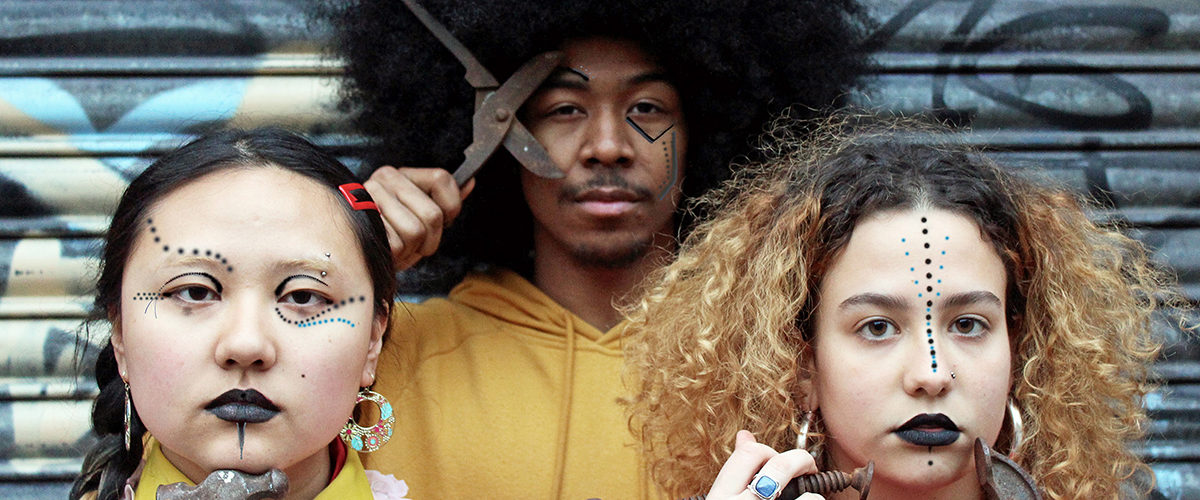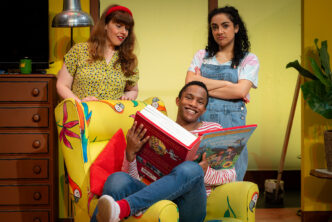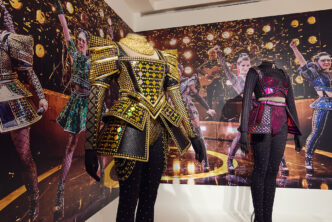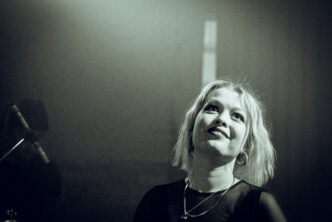What does public culture mean? That’s the question posed by Contact Young Company and Young Identity as they take audiences on an alternative tour of Manchester Art Gallery in Old Tools > New Masters ≠ New Futures. Quays Life caught-up with co-directors Tunde Adefioye and Ruby-Ann Patterson to find out more about their new fusion of art and theatre promenade performance.
What is the idea behind young people taking over Manchester Art Gallery for three days?
Ruby-Ann: In order to decolonise public culture, it is essential that Young People have their voices heard, their presence felt and their ideas implemented in Public Arts spaces. In order for this to be successful they also need to have a role in producing the space itself.
In what way is the tour alternative?
Tunde: The tours the young creators have produced are alternative because the main focus is not on the art work in the Manchester Art Gallery alone. Instead, and more crucial the focus is how they can re-claim the gallery spaces, how they can tell new stories while creating new meaning and other types of decentralisation.
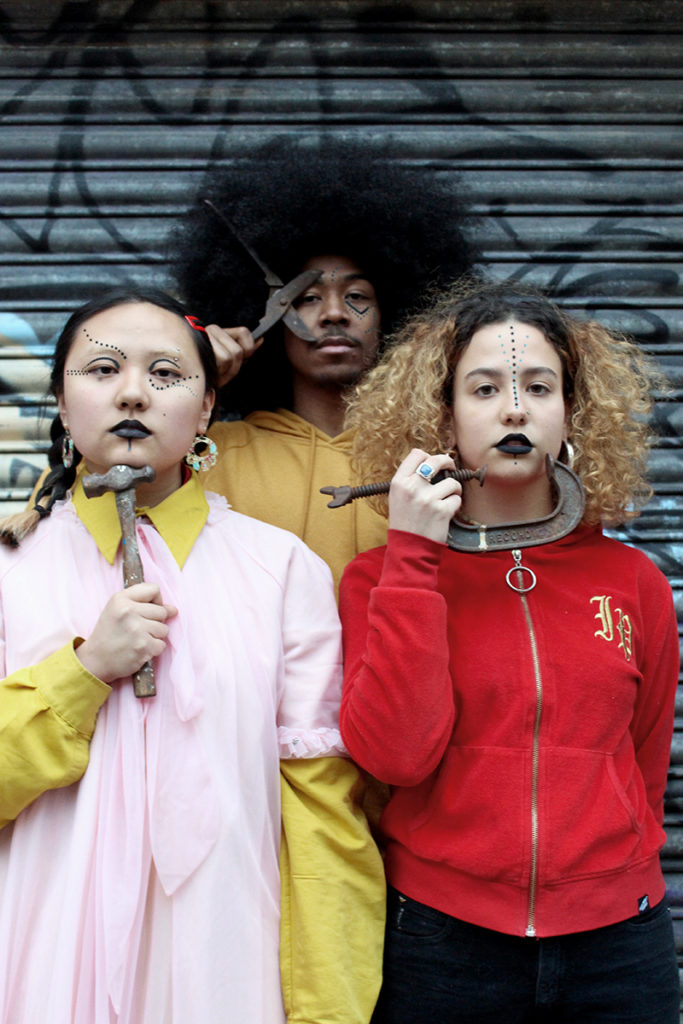
The tour lasts an hour-and-a-half, what happens during that time?
Tunde: There will be three different routes/tours. During the tours, the young creators will not only comment on some of the art work but more importantly they will use the space to engage the audience members in rituals, and one of the routes will try and re-imagine the idea of a gallery space anew.
What have been the biggest surprises for you working on this show?
Tunde: The amount of good content and creative idea that has been generated by the participants in such a short amount of time has been a nice surprise. I think that has a lot to do with the producer Keisha, who has put everything together seamlessly making space for us to direct and the young people to create. Apart from that, the willingness of the two Kates at MAG to accommodate us has been quite a welcome surprise.
How do you think the piece has changed the views on public art for the young people involved?
Tunde: I think they have had the opportunity to further their own already very broad and expansive knowledge – to find out how colonisation has impacted Manchester specifically. This piece has allowed for collaboration and new conversations to be formed – young people have been imagining and re-imagining new tomorrows. I think the process of curation has demystified the structures that determine what is important in the public art world. In response, the young people have been able to deconstruct those structures and imagine and create new ways to view public art.
Did you have any organisations similar to Contact Young Company to get involved with theatre when you were growing-up?
Ruby-Ann: The only theatre groups I attended were after school programmes where we were given a script, directions and expected to follow suit. The most important aspect of Contact Young company is that the Young People are the devisors of the piece – they decide what the theatre should look like and what it needs to do and say for themselves.
What is your background? How did you get involved in theatre leading to a career in the arts?
Tunde: I actually have a background in the sciences. I helped to start a poetry organization called Urban Woorden in Leuven, Belgium at the end of 2009. From that point in 2016, I joined the KVS (City Theatre of Brussels) as a city dramaturg. This is when I really started to work in the theatre making process. Since then, I have done dramaturgy for Sachli Gholamalizad’s (Not) My Paradise and Let Us Believe in the Beginning of the Cold Season, SLOW #01 & 02, and together with colleague Kristin Rogghe the dramaturgy of Fikry El Azzouzi and Junior Mthombeni’s Malcolm X. In the 2018-19 season I conceived the successful participatory project Senioren Slam which gave a series of workshops and preparations to seniors in different centers for senior citizens around Brussels and Leuven to create a beautiful night of slam poetry/spoken word.
Have you done work like “…New Futures” elsewhere, and how has the experience been similar or different in Manchester?
Tunde: Years ago, I helped bring four young ‘womxn’ of colour together to create a performance piece that combined dance, film and poetry. Though the piece was performed in a space that traditionally did not have many individuals of colour on stage, the piece was not specifically focused on the theme of post-colonial futures. That is the big difference with this piece, it specifically addresses and questions the tools that we use to try and create New Futures instead of just new masters.
What do you hope the audience will take from the show?
Ruby-Ann: I know that due to the nature of the promenade shows, audiences will take away different aspects and ideas – I hope that they are encouraged not only to start conversations but to continue taking up space in public art galleries – I would love if audiences keep on interrogating artworks, history, culture. In fact, I hope that audiences feel they are abler to disrupt the ideas and narratives our public spaces tell us about ourselves and each-other.
What does a post-colonial future look like to you?
Ruby-Ann: To me, a ‘post-colonial future’ looks like representing the vast and ever-changing modes of human existence and experiences, especially the untold and ‘forgotten’ histories hidden by the reality of colonialism’s impact. A post-colonial future recognises the fluidity and fractured nature of human identity – it begins to dismantle the impossible ideals presented to us as the ‘norm’; rejecting the ways they are reverberated within public culture today.
What does it mean to you in practice to link theatres and new urban living?
Tunde: What can be asked in return is maybe, what does theatre gain in linking itself to the new realities present in modern and post-modern cities and practices? For theatre to stay alive as a practice art form it is crucial that it continues to open-up to new stories, new theories and new ways of being. Theatre and its practitioners have more to learn from new urbanity than the other way around. It is thus, imperative that theatre and cultural practitioners, open up themselves to new visions, new people making directorial and creative decisions. This is critical in order to insure its vitality and innovation.
What further opportunities would you like to see for young people to get involved in the arts?
Tunde: Any opportunity they wish to have – I want that for them! I hope they continue to be supported by arts companies, charities and galleries – to be given space and a real place at the decision-making table. We need them more than we recognise!
Old Tools > New Masters ≠ New Futures is at Manchester Art Gallery from 12-16 June 2019. There are no performances on Sat 15 June 2019. The performances on Thursday 13 June (7pm) & Sunday 16 June (3pm) will be followed by a post-show discussion.

